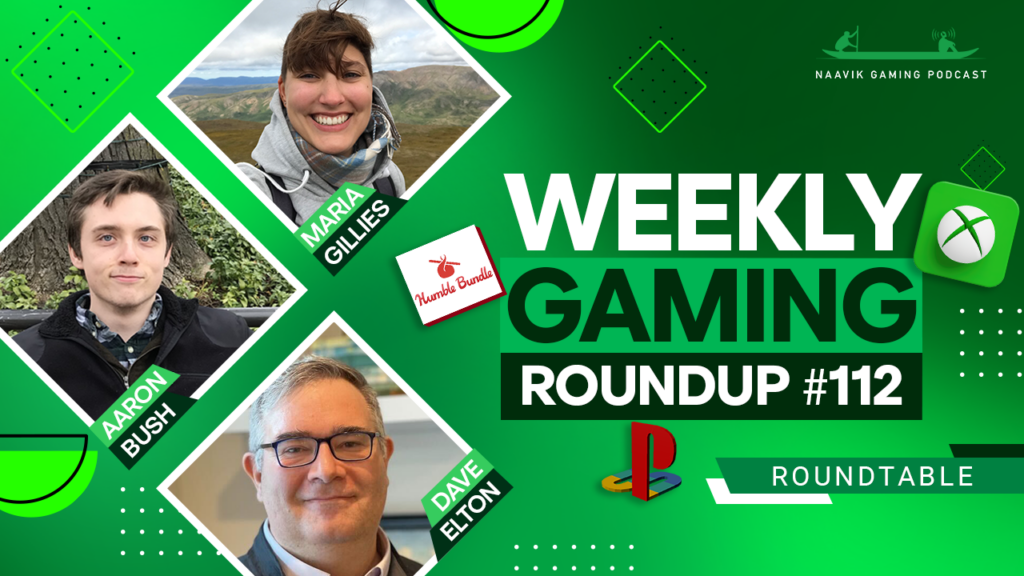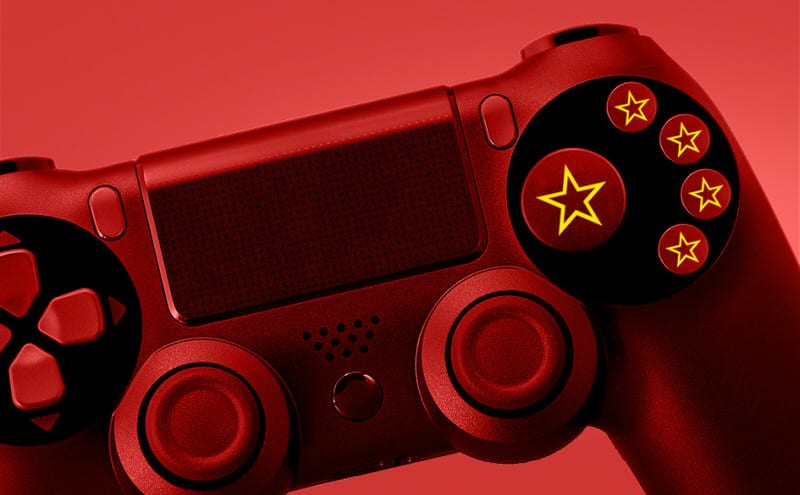Hi everyone. In case you missed our last issue, make sure to check out our write-up about mastering the player’s journey. We’ve heard a lot of great feedback so far!
Of course, we love when you all appreciate our content, but Naavik’s Open Gaming Research Initiative also means appreciating and sharing much of your great work, too! Here’s a fantastic essay series, podcast, and video we enjoyed this week:
- The Esports Reckoning. A group of long-time esports insiders banded together to create a deeply thoughtful essay series on esports winter, the misaligned incentives across stakeholder groups, and potential paths to profitability.
- Take-Two Interactive: GTA and NBA 2K. Our friend and industry analyst Eric Kress joined the Business Breakdowns podcast to deconstruct Take-Two’s history, strategy, and economics, plus the trade-offs of industry consolidation.
- Baldur's Gate 3: Swen Vincke on New Endings, Strange Problems, and the Future. This interview with Larian’s founder, CEO, and creative director pulls back the curtain and shares bunch of great insights into how this smash hit was created and what drives Larian.
Without further ado, let’s jump into today’s issue, which dissects the week’s top news and shares a deep dive covering three notable marketplace / ecosystem case studies.
Starfield Launches / Actors Strike May Hit Games / Humble Bundle’s Expansion

In this week's Roundtable, the squad highlights data.ai’s new 2023 Gaming Spotlight Report and adds more details around PlayStation’s decision to raise subscription prices. Then we cover Starfield’s launch, including its impact on Game Pass and the viability of its windowing strategy, followed by discussion on how the writers and actors strike could impact the games industry. Lastly, we wrap up by exploring Humble Bundle's quiet yet interesting expansion strategies. Join us for all the latest games business news with Aaron Bush, Dave Elton, and host Maria Gillies.
#1 Gaming Marketplace Case Studies
By Tom Kinniburgh, Naavik Consultant

This report was originally written in July 2022 for one of Naavik’s consulting clients and was lightly updated for 2023. If your team would like to explore working with Naavik on market research, please contact us. We’d be excited to chat with you.
With the rise of new marketplace and ecosystem attempts – Steam competitors, third-party app stores, web3 ecosystems, etc. – we would be remiss to not take a look back at the implementations of historic gaming marketplaces and how they evolved. In particular, we want to research what’s happened in the past with regard to ecosystem-wide currency implementations. With that in mind, this report:
- Selects three ecosystem case studies that either developed a network of games to create an open market or built very successful games that had their own markets.
- Analyzes the launch, usage, and outcomes of their markets, virtual currencies, and games.
- Takes learnings with respect to the incentives and motivations of the four major parties involved in game development and play (platform, publisher, developer, player).
Here are the case studies we dive into:
- Valve’s Steam Store - A closed ecosystem with no ecosystem coin but a strong player-to-player marketplace that is still growing today.
- Facebook & Zynga - A closed ecosystem with a pegged ecosystem coin and multiple partners.
- Second Life by Linden Labs - An open ecosystem with an unpegged ecosystem coin that players created and built their own economy and functionality within.
Each of these ecosystems was labeled novel and innovative at the time. They also each interacted with a broad range of individuals, primarily focused on PC gaming, and attempted a unique method of ecosystem design.

Build a Support-a-Creator program with Nexus
Explore implementing a game-changing Support-a-Creator program with Nexus, the leading platform for live service PC, console, and mobile video games, designed for building holistic creator programs.
Through Nexus’s Support-a-Creator API, live service publishers can build world-class creator programs that drive significant growth in conversion, ARPPU, retention, and LTV. Nexus has partnered with leading live service publishers like Capcom, Grinding Gear Games, Hi-Rez Studios and Ninja Kiwi to build out their creator programs by managing creator onboarding, payments, analytics, attribution and so much more.
Partner with Nexus and benefit from their expertise while implementing your own Support-a-Creator program.
#2 China Approvals, Humble Bundle’s Plan & the Creator League’s Downfall
By Aaron Bush, Naavik co-founder

China’s game approval momentum continues. The past couple years were quite difficult for China’s games industry, in part because the government took a looong pause on approving new games. That’s dramatically turned around in 2023, with over 80 games being approved each month this year so far.
- Most of these game approvals are for domestic games, but one notable change for August was that it included 31 import game approvals — including The Lord of the Rings: Rise to War (published by NetEase) and Avatar: Reckoning (published by Tencent’s Level Infinite).
- This is 2023’s second and largest batch of import approvals (27 were approved in March), and it brings the total up to 58. That might not sound like much, but both import approvals and overall approvals for 2023 already surpass last year’s numbers.
- We expect the approvals momentum to continue for now. Of course, the never-ending caveat with this topic is that the Chinese government could change course at anytime, which makes it a difficult market for global games team to bet on.
Humble Bundle eyes further expansion. According to an interview with PocketGamer.biz, the company is looking to grow into first party content, possibly via game studio acquisitions.
- As a reminder, Humble is actually part of a much larger holding company called Ziff Davis, which most notably also owns IGN, plus multiple other media properties and businesses in other industries. Humble makes money a few key ways: through its general online storefront, pay-what-you-want bundles of indie games, and via a monthly subscription plan.
- The team’s focus on indie games and bundles are what historically made the company unique, but what makes it special is its passion for charity. In fact, the company has raised over $240M for various charities so far.
- How does first-party content fit in? Well, as the broader industry leans more into subscriptions and competing storefronts (whether Xbox Game Pass, Epic Games Store, etc.), standing out and competing for players’ attention increasingly requires exclusive content. We expect any first-party efforts here will mainly go to making the existing offerings more compelling.
- Make sure to tune into this week’s roundtable episode for more insights.
The Creator League crashes. We all know esports needs a good shake-up, and one interesting project in this realm was Creator League. Unfortunately, that may now be in jeopardy.
- According to Matthew Benson, CEO of eFuse, the organizing company behind the project: “The Creator League was an experiment in creator-led, fan-controlled esports.” In short, eight creator-led teams (with MrBeast as host) were going to compete (such as in Fortnite), and users could buy $20 community passes to access exclusive privileges related to their specifically chosen team like Discord access, voting rights, and participating in events. It was a novel way to boost community engagement and interest in esports.
- However, it all started falling apart when word got out that the project leveraged the Near blockchain to “validate data and log information relating to the community passes.” Clearly, there’s nothing inherently immoral about this — and no cryptocurrency or tradable NFT was involved — but even so crypto-related backlash ensued. Although eFuse could’ve been more transparent and perhaps aligned with creators who are more embracing of new tech, it seems many gamers still have PTSD and want nothing to do with blockchains in gaming projects.
- Since the fallout began, eFuse decided to postpone the Creator League and laid off 30% of its staff. Who knows if or when the Creator League will resume, but it’s surprising how fragile eFuse was to this setback. We’ll see what happens next, but hopefully new projects that bring more community engagement into esports still get created.
Featured Jobs
- Dream Game Studios: Head of Product (Pune, India)
- Dream Game Studios: Head of Marketing (Pune, India)
- Dream Game Studios: Head of Game Production (Pune, India)
- FunPlus: Lead Game Designer (Barcelona, Spain)
- FunPlus: Senior Game Artist (Barcelona, Spain)
- FunPlus: Senior Game Developer (Barcelona, Spain)
- Nexus: Head of Sales (Remote)
You can view our entire job board — all of the open roles, as well as the ability to post new roles — below. We've made the job board free for a limited period, so as to help the industry during this period of layoffs. Every job post garners ~50K impressions over the 45-day time period.








